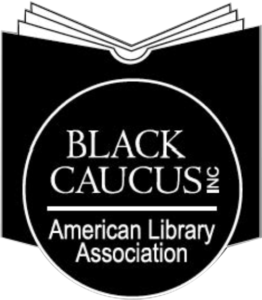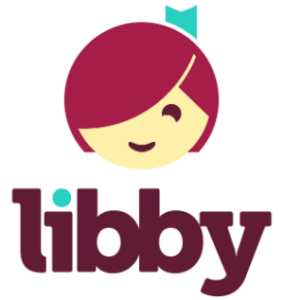
A History of Racism in American Public Libraries
Recently, as with racism in the rest of our society, there has been a lot of to think about racism in American public libraries. There have been meeting rooms loaned to hate groups. Librarians have highlighted library over-policing as a problem of racial justice. But racism in American public libraries has had a long and tangled history, just as has racism in America. Maybe it should come as no surprise that an institution born in this country should also struggle with its most stubborn problem.
That said, libraries also stand out because they — and librarians — mostly want to be better. In words, at least, libraries want to be the killer app for all Americans, the secret ladder out of poverty and the magic bullet of ignorance.
In fact, the hard work that needs to be done to disentangle libraries from racism is nowhere near that heroic. It means acknowledging that there are problems. That librarians of color don’t necessarily have the same support that white librarians enjoy. That the expensive Master’s degree requirement, combined with middling wages, constitutes a sometimes insurmountable barrier to underprivileged communities, particularly those of color. That our patrons of all colors usually see just one behind the desk.
Being Better
I believe in libraries. As a white woman in a profession largely made up — problematically, homogeneously — of white women, I simultaneously believe that white librarians can be better allies and that the profession as a whole needs to reconsider the reasons that the problems persist. It is incumbent upon current librarians, particularly white librarians, to self-educate about race and racism in our context. This piece is the product of an education that is by no means complete. I invite our readership to comment, append, criticize, and opine on social media. Most especially, I urge our readers to draw upon the resources that I will list after the body of this piece.
The best way to understand why racism in American public libraries is a problem is to return to the beginning. For American public libraries, that beginning was Melvil Dewey.
The Beginning Of Racism In American Public Libraries
It’s no secret that Melvil Dewey was a racist. Even for the late 1800s and early 1900s, he held shockingly prejudiced views. He particularly hated Jewish people, but only because he didn’t spend much time even thinking about other minorities. His library was a white Christian man’s institution, and nobody questioned that for a long time.
Dewey’s eponymous classification system was a ringing indictment of his narrow philosophy. The 200 section of the Dewey decimal system covers religion, and 70% of it explicitly deals with Christianity. In the same way, all of the catalog is tacitly white unless explicitly otherwise. Originally, the only Dewey space for people of color fell into the slavery and colonization categories. Diversity was the other to this cataloging system, and its inclusion as a topic at all is a compensation that later librarians have had to make. Howard University librarian and multi-linguist Dorothy Porter was one of the foremost of these innovators. Decolonizing libraries was her life’s work.
It is easy to focus on Jim Crow as an era of racism in American public libraries, but it’s also important to remember that slavery was in full swing when public libraries were invented. Remember, the Boston Public Library opened its doors in 1852, nine years before the start of the Civil War. Race was absolutely an issue. People were talking about it. The U.S. fought an entire civil war over it. At some point, librarians and public libraries had to address race in their policies. Many did a very bad job.
The 20th Century
There were libraries for Black patrons during the era of segregation, but they weren’t Black libraries per se. Instead, they were lesser branches of municipal libraries, where city and town officials — white ones, of course — occupied leadership roles. Sometimes libraries under Black control thrived, and sometimes local officials found ways to shut them down.
For example, when Houston’s Black community created its own library in 1913, the city stepped in and disbanded that library’s all-Black board eight years later. Apparently, the affront was that this library might become just as good as a white library, might be run independently by Black people, and might successfully execute its goal of community empowerment. The library soon reopened as a truly segregated branch of the city library system, ensuring that Houston could keep it under white control for the foreseeable future.
Reading In Defiance
The law met other attempts to desegregate public libraries. Alexandria, Virginia arrested five Black library goers in 1939 because they were “disturbing the peace” by quietly reading in Alexandria’s new library, a whites-only branch, of course. Their sit-in inspired a mob of several hundred wrathful white Virginians to assemble outside of the library to stop them from committing the tremendous and terrifying civilization-ending crime of reading quietly and not bothering anyone. The judge adjudicated the case, meaning that the charges remained open for, as it turned out, the rest of the protesters’ lives. They were finally dismissed 80 years later.
Aside from the pettiness of Jim Crow, where even drinking fountains and laundromats famously fell into equal and not-quite-equal categories, libraries and schools represented a particular threat to the premise of segregation. Someone educated in the system’s ways and means would have the tools to combat it. Sadly, public libraries appear to have generally toed the line when it came to segregation. In many cases, African American neighborhoods got limited library services or no library services.
After Segregation
Later, when public libraries had desegregated, library leadership continued to deprioritize pressing racial justice concerns. In 1970, the first meeting of the Black Caucus of the American Library Association formed to address the fact that the ALA wasn’t meeting the needs of Black library professionals. At this time, certain private grade schools had taken it upon themselves to enforce whites-only admission policies. The librarians who staffed these schools were members of the ALA. The BCALA suggested that the ALA take a stand and censure these de facto segregated libraries, and the librarians who supported them, until the schools allowed Black students to attend.
This was an opportunity for the ALA to address a concern its own members were posing about both professionals and patrons. Sadly, they didn’t take it seriously for a long time. The BCALA, which came out of the gate with respected leadership and actionable ideas, did not get formal affiliation with its parent body until 1992.
Steps Forward
As soon as the ALA formally associated with the BCALA, it created a scholarship. This fund was named after BCALA founder E.J. Josey, and its purpose was to help Black students become librarians. Today there are several such scholarships. It was a huge step forward, a sign that the library profession was ready to try to fix itself.

As time has gone on, more white librarians, not to mention the ALA, have become aware of the public library’s role in perpetuating institutional racism through the decades. This awareness has led to localized policy, collection, and program changes at libraries. Regional and national associations now support professionals who want to address the history and present of racism in American public libraries. But as librarians have begun to address immediate needs for socially aware staff and collection development, systemic issues have emerged that challenge the resources of even the most progressive libraries.
Racism In American Public Libraries Today
In the context of this piece, it’s worthwhile to establish current librarian demographics. Most librarians are older, middle-class white women who only speak English. This isn’t an anecdotal estimate; it’s statistics. The twist is that among library support staff, in other words non-degreed assistants, technicians, clerks, and pages, racial demographics roughly mirror those of the nation at large. The Master’s of Library Science degree requirement is the most likely gatekeeper discouraging people of color from fully inhabiting librarianship.
Because so many librarians are white, public libraries have become white spaces where patrons of color may feel reluctant to ask questions or use resources. Often, there are reasons for this, since white librarians do often discriminate against Black patrons and Black-sounding names, particularly in areas that are already low on diversity. Ideally, public libraries would be neutral, places where any patron could walk through the door and feel represented by members of the staff. However, barring an overnight shift to true representation, fair, equal, and respectful treatment for all patrons regardless of color becomes even more important. In this case, the fact that librarians have been found to discriminate based on race is an especially bad outcome for the profession.
An Uneven Conversation About Racism in American Public Libraries
These problems would not be so damning if the library profession were addressing them as a coordinated whole. But the real heart of the issue is that the profession is not having a structured conversation about it. Libraries are too important to fall prey to one-on-one racism. Driving away communities of color through attitude and unaddressed prejudices is the grandchild of segregation. Many librarians know that we risk everything by ignoring it. Others would do anything rather than bring it up.
Libraries currently find themselves at the crux of several racially charged issues. Hosting hate groups in public library meeting spaces, for example, would seem to be a no-brainer, since the presence of a hate group would make the space unsafe for patrons with minority status and therefore not available to the entire community. According to the ALA, however, public libraries should not turn away hate groups just for being hate groups as long as they abide by library rules. (After some kerfuffle, the term “hate groups” was replaced with the term “partisan political groups” in the ALA policy interpretation.)
This policy isn’t binding — it’s just the opinion of a bunch of influential librarians. Still, since most librarians are white, it seems likely that implementation of this policy on the ground hinges on mainly white perspectives, and its passage in the ALA may have happened without a range of representational voices proportionate to the general American population.
Internal Professional Issues
Failing to acknowledge the racism issue is not just a problem for patron-facing services. A general dearth of Black and Latinx librarians leads to a lack of perspective on racial issues. This damages the library profession as a whole. A couple of years ago, when a white colleague publicly browbeat Black librarian April Hathcock for, among other things, using “racial innuendoes” on her blog, none of the 30 other librarians in the room came to her aid. Then, the ALA’s counsel pressured her to keep quiet about the incident. Had there been more racial diversity both in that room and in ALA leadership, this incident might have played out much differently.
Progress
There has been progress. The American Library Association has formally recognized the damage done by librarians and libraries that enforced Jim Crow laws, and there is now more discussion about problematic policies. The current Librarian of Congress, Carla Hayden, is a Black woman. Another Black librarian, Julius C. Jefferson Jr., is currently the president of the ALA.
Librarians, for the most part, are sincere people who mean well. They are individually and regionally eager to grow and improve. They invite speakers on racism to conferences, run programs about racism, build displays, institute local policies banning hate groups from using library rooms despite the ALA line, and seek to better themselves individually through self-education. There is tremendous potential for public libraries to grow in this direction. They can become the vehicles of empowerment that they ought to be for everyone.
But reckoning with Jim Crow and issuing a formal apology to a nebulous assumed Everyone Out There (“We’re sorry,” someone shouts into a canyon,) isn’t enough. Conscious and systematic changes in organizational and professional philosophy need to happen to change that. To start, librarian organizations need to acknowledge — loudly, universally, and openly — that racism in American public libraries is still a problem. Once that happens, maybe libraries can start working on better fixes.
Further Reading
Articles
A Brief History of Library Service to African Americans by Maurice Wheeler, Debbie Johnson-Houston and Billie E. Walker
Battling Racism Below the Surface by Phil Morehart
Racial Equity in the Library, Part One: Where to Start? by Erin M. Schadt
Racial Equity Panel Addresses Bias in Library Work by Lindsay Gypin
Books
The Desegregation of Public Libraries in the Jim Crow South: Civil Rights and Local Activism by Wayne and Shirley Wiegand
Not Free, Not for All: Public Libraries in the Age of Jim Crow by Cheryl Knott
Unfinished business: Race, equity, and diversity in library and information science education, edited by Maurice Wheeler
Untold stories: Civil rights, libraries, and black librarianship by John Mark Tucker
Reading Lists
Disrupting Whiteness in Libraries and Librarianship: A Reading List by Karla J. Strand
Mapping Race and Racism in U.S. Library History Literature, 1997–2015 by LaTesha Velez and Melissa Villa-Nicholas












